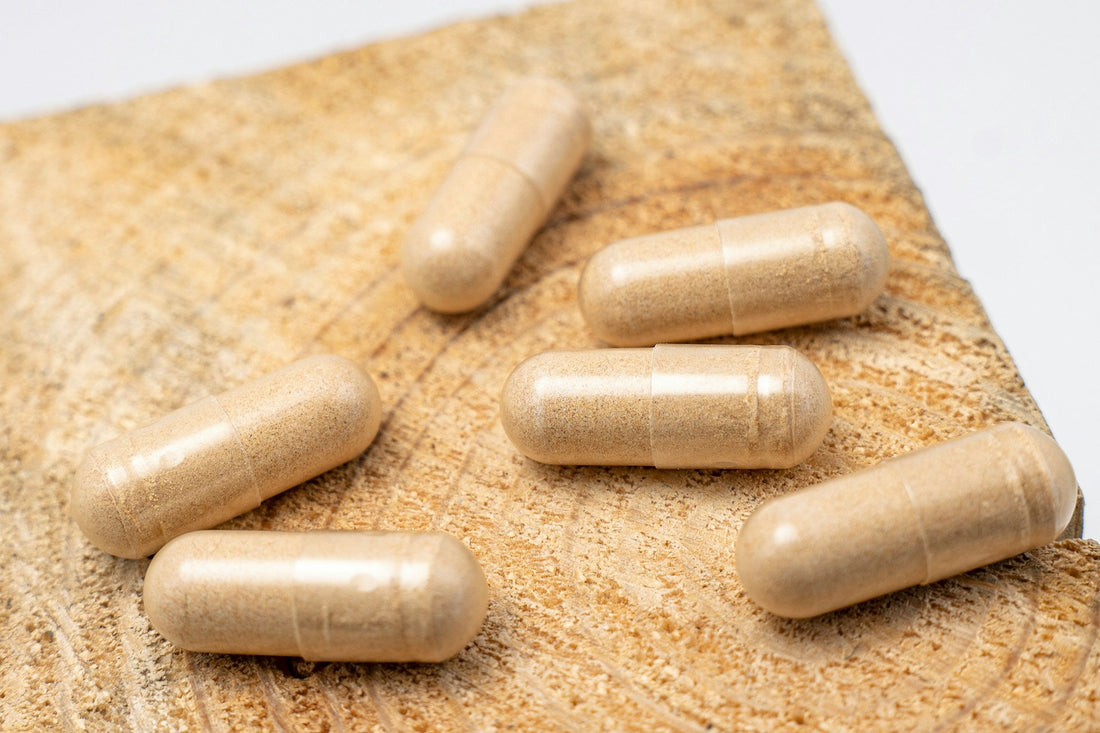
Best Fiber Supplement for Constipation and Hemorrhoids: Top Picks and Benefits
Share
If you're struggling with constipation or hemorrhoids, you're not alone. Many people are looking for effective solutions to relieve these uncomfortable conditions. The best fiber supplement for constipation and hemorrhoids provides the necessary support to enhance bowel regularity and alleviate pressure in the anal region. Choosing the right fiber supplement can make a significant difference in your overall digestive health.
Incorporating fiber into your diet is essential for maintaining regular bowel movements, which can help mitigate the discomfort associated with hemorrhoids. Hem Healer stands out as a top choice, as it offers a 100% natural blend of botanical herbs designed to reduce pain, swelling, and bleeding. This supplement is formulated to be effective for both men and women, addressing the root of hemorrhoid issues while promoting better digestive health.
By understanding the relationship between fiber intake, constipation, and hemorrhoids, you can take proactive steps to improve your condition. With Hem Healer, you gain access to a natural and effective remedy aimed at enhancing both comfort and well-being, paving the way for a healthier digestive system.
Understanding Fiber and Its Role in Digestive Health
Fiber plays a crucial role in maintaining digestive health by supporting bowel regularity and reducing the risk of issues like hemorrhoids. Understanding the types of dietary fiber and their specific benefits can help you make informed choices about supplementation.
Types of Dietary Fiber: Soluble and Insoluble
Fiber is categorized into two main types: soluble and insoluble. Soluble fiber dissolves in water, forming a gel-like substance that helps slow digestion and can moderate blood sugar levels. Foods rich in soluble fiber include oats, beans, and fruits like apples and oranges.
Insoluble fiber, on the other hand, does not dissolve in water and adds bulk to the stool. This type is essential for promoting regular bowel movements and preventing constipation. Whole grains, nuts, and vegetables like carrots and cucumbers are excellent sources of insoluble fiber. Including a mix of both types is important for optimal digestive health.
The Importance of Fiber for Bowel Regularity
A diet high in fiber significantly contributes to bowel regularity. Increasing your fiber intake enhances stool bulk and facilitates easier passage through the intestines. This prevents straining during bowel movements, a common trigger for hemorrhoids.
For individuals experiencing constipation, soluble fiber can help by drawing water into the stool, softening it for easier elimination. Maintaining adequate hydration while increasing fiber intake is crucial; it helps fiber work more effectively. Regular bowel movements can improve your comfort and overall health.
Impact of Fiber on Hemorrhoids and Constipation
Consuming adequate fiber can reduce the risk of developing hemorrhoids. A diet lacking in fiber often leads to constipation and straining, which increases pressure in the rectal area.
Incorporating fiber supplements, like those offered by Hem Healer, can also provide relief. Hem Healer features a 100% natural blend of botanical herbs, specifically designed to alleviate the pain, swelling, and bleeding associated with hemorrhoids. This holistic approach can be beneficial for both men and women. Adjusting your fiber intake can lead to improvements in both constipation and hemorrhoid symptoms, enhancing your digestive wellness.
Selecting the Right Fiber Supplement
Finding the appropriate fiber supplement can significantly impact the management of conditions like constipation and hemorrhoids. You must consider the form of the supplement, evaluate natural sources against over-the-counter options, and identify key ingredients for effectiveness.
Evaluating Different Forms of Fiber Supplements
Fiber supplements come in various forms, including powders, capsules, and chewable tablets. Each form has unique benefits that can suit different preferences and lifestyles.
- Powders: Generally dissolve in liquids and can be mixed into foods, offering flexibility in how you consume fiber.
- Capsules: Convenient and easy to swallow, making them an excellent option for those who dislike the texture of powder.
- Chewable Tablets: Ideal for individuals who prefer a more palatable option.
When choosing, assess whether you prefer convenience or versatility. For those needing immediate relief from constipation, powders like Metamucil or Hem Healer can be particularly effective due to their higher fiber concentration.
Natural Sources vs. Over-the-Counter Products
Natural fiber sources such as fruits, vegetables, legumes, and whole grains can be integral to your diet. They not only provide fiber but also essential vitamins and minerals. However, you might find it challenging to meet your daily fiber needs solely through food.
Over-the-counter products can be beneficial when you need targeted relief. Supplements like psyllium, methylcellulose, and calcium polycarbophil offer easy ways to increase fiber intake. Hem Healer, made from 100% natural botanical herbs, is particularly advantageous for addressing hemorrhoid symptoms while providing additional digestive support.
Key Ingredients in Effective Fiber Supplements
When assessing fiber supplements, certain ingredients stand out for their benefits.
- Psyllium: Known for its high soluble fiber content, it can help bulk up stool and promote regularity.
- Calcium Polycarbophil: A synthetic fiber, effective for improving stool consistency and preventing constipation.
- Methylcellulose: A plant-derived fiber that absorbs water and forms a gel, easing bowel movements.
Opt for supplements that combine these ingredients for a comprehensive approach. Hem Healer incorporates herbal formulations aimed specifically at alleviating hemorrhoid discomfort while boosting gut health, making it a suitable choice for holistic relief.
Dietary Considerations and Lifestyle Changes
Choosing the right dietary considerations and lifestyle changes can significantly impact your management of constipation and hemorrhoids. Emphasizing high-fiber foods, understanding IBS management, and maintaining proper hydration and exercise are key aspects to focus on.
High Fiber Foods for a Balanced Diet
Incorporating high-fiber foods into your diet is crucial for alleviating constipation and preventing hemorrhoids. Aim for 20-35 grams of dietary fiber per day, which can be achieved through whole foods. Some excellent sources include:
- Fruits: Apples, pears, and berries
- Vegetables: Broccoli, carrots, and spinach
- Legumes: Lentils, chickpeas, and beans
- Whole grains: Brown rice, quinoa, and whole wheat bread
Fiber softens stools, making them easier to pass and minimizing strain during bowel movements. A diet low in fiber can lead to constipation, making hemorrhoids more likely. To ease into a higher fiber intake, gradually increase the amount to reduce potential digestive discomfort. Supplements like Hem Healer can support your fiber intake as they are designed to alleviate the discomfort associated with hemorrhoids.
Managing Irritable Bowel Syndrome (IBS)
If you suffer from IBS, managing fiber intake becomes more complex. Some people with IBS may react negatively to certain foods, so keeping a food diary can help identify triggers. Focus on soluble fiber sources, such as oats and apples, which are typically gentler on the digestive tract. Avoid rapid increases in fiber, as this can cause gas and bloating.
Incorporating probiotics may also aid in balancing gut bacteria and reducing IBS symptoms. It’s crucial to consult a healthcare provider for personalized advice tailored to your specific condition. A well-managed diet can significantly improve your experience with IBS, offering relief from constipation and minimizing complications such as hemorrhoids.
The Role of Proper Hydration and Exercise
Hydration is vital when increasing dietary fiber. Adequate water intake (8-10 glasses per day) ensures that fiber can effectively do its job. This fluid intake helps in softening stools, making them easier to pass.
Exercise also plays a substantial role in digestive health. Regular physical activity stimulates bowel function, further preventing constipation. Aim for at least 30 minutes of moderate exercise most days, such as walking or cycling.
Combining proper hydration with Hem Healer supplements can support overall digestive well-being, reduce symptoms of hemorrhoids, and improve weight management. By focusing on these lifestyle changes, you can foster healthier bowel habits and enhance your quality of life.
Potential Side Effects and How to Avoid Them
When considering fiber supplements for constipation and hemorrhoids, it's important to be aware of potential side effects. Understanding how to manage these effects can enhance your experience and effectiveness of the supplement.
Dealing with Gas, Bloating, and Diarrhea
Gas and bloating are common side effects associated with increased fiber intake. As your digestive system adjusts, these symptoms may occur. To mitigate discomfort, start with a lower dose of fiber and gradually increase it.
Hydration is also key; drink plenty of water to help fiber move through your system. Incorporate soluble fiber, like psyllium, as it can create a gel-like substance that soothes the intestines and may alleviate cramping. If diarrhea occurs, reduce your fiber intake temporarily until your body stabilizes.
Choose supplements that are best suited for your symptoms. For instance, the natural blend found in Hem Healer can help manage abdominal discomfort while addressing hemorrhoid symptoms effectively.
Consulting with Healthcare Providers
Before starting any fiber supplement, consulting with a healthcare provider is crucial, especially if you have existing health conditions or are on medications. Certain fiber types can interact with medications, affecting their absorption and efficacy.
A healthcare provider can recommend appropriate dosage and type of fiber supplement tailored to your needs. They can also guide you if you experience persistent digestive issues or discomfort. For hemorrhoids, a provider might suggest options like Hem Healer, which is designed specifically for both men and women to address pain and swelling.
Monitoring your body's response is essential. If side effects persist, your healthcare provider can adjust your plan, ensuring safety and effectiveness in managing your symptoms.
Additional Health Benefits of Fiber
Fiber provides a range of health benefits beyond its well-known role in digestive health. It contributes to balanced blood sugar levels, improves cholesterol management, and supports the gut microbiome. Understanding these additional benefits can help you make informed choices in your dietary habits.
Prebiotics and Gut Microbiome Health
Certain types of fiber act as prebiotics, which serve as nourishment for beneficial gut bacteria. These fibers are fermented in the colon, leading to the production of short-chain fatty acids that support gut health.
A healthy gut microbiome plays a vital role in digestion, immunity, and even mood regulation. Foods high in soluble fiber, like oats and legumes, help create an optimal environment for friendly bacteria, improving your overall gut balance.
Investing in your gut health can lead to improved digestion and enhanced nutrient absorption, which ultimately supports overall well-being. For those seeking effective fiber supplementation, Hem Healer offers a natural blend of botanical herbs tailored to support your health journey.
Fiber's Role in Disease Prevention
Incorporating sufficient fiber into your diet can lower the risk of several chronic diseases. Studies suggest that a high-fiber intake is associated with improved cholesterol levels, which may reduce the risk of heart disease. Additionally, fiber helps regulate blood sugar levels, making it beneficial for those with insulin sensitivity.
Fiber's protective effects extend to colon health as well. Research indicates that diets rich in fiber may lower the risk of colon cancer by promoting regular bowel movements and reducing inflammation in the gut.
By focusing on fiber-rich foods or supplements like Hem Healer, you can play an active role in disease prevention and promote long-term health benefits.

